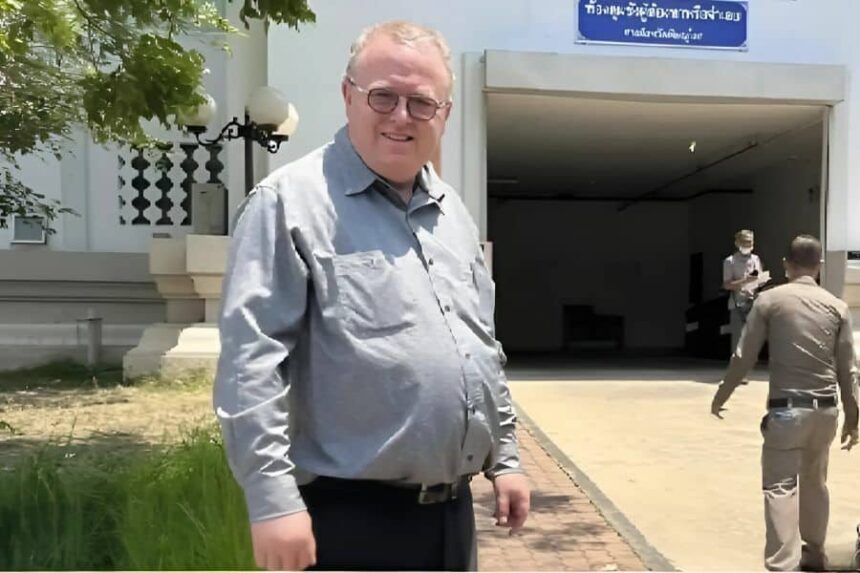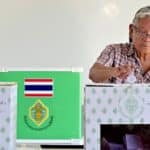BANGKOK – Thailand faces growing calls to dismiss lèse-majesté charges against Dr. Paul Chambers, an American political scientist teaching at Naresuan University in Phitsanulok.
Dr. Chambers was taken into custody on April 8, 2025, under Thailand’s lèse-majesté law (Article 112) and the Computer Crimes Act. If convicted, he could serve up to 15 years in prison. He secured bail for 300,000 baht (about $8,800) on April 10, but authorities kept his passport, and his visa status remains uncertain.
The U.S. State Department raised concerns, saying the case highlights ongoing worries about Thailand’s lèse-majesté laws and called for respect for free speech. The case also appears to have complicated trade discussions between the United States and Thailand. Former Prime Minister Thaksin Shinawatra has linked the situation to delays in tariff negotiations.
Academic Freedom
Now, a top political science association in the U.S. has voiced its concerns about Chambers’ arrest and detention. The American Political Science Association (APSA) wrote an open letter to U.S. Secretary of State Marco Rubio and other leading lawmakers, urging Thailand to respect freedom of expression and academic freedom as protected by its constitution and international agreements.
The letter notes that although Chambers is out on bail, his visa has been cancelled, his passport seized, and his laptop taken. “These conditions make it nearly impossible for him to continue his work as a scholar,” the association said.
APSA represents over 10,000 political scientists, including many in the country. The group called Chambers’ research, which covers the military’s role in Thailand and examines civil-military relations over the past fifteen years, is well-respected.
APSA is worried about the criminal case against Chambers because it relates to his academic work and peaceful public statements. The group points out that these activities are protected by global human rights agreements, such as the Universal Declaration of Human Rights and the International Covenant on Civil and Political Rights, both of which Thailand has signed.
Thailand’s Human Rights
APSA also warned that this case could make other scholars afraid to speak openly or do honest research, both in the Kingdom and abroad.
The letter urges Thai authorities to drop all charges against Dr. Chambers. APSA says this would show a real commitment to academic freedom, open inquiry, and free speech. These values are key to strong higher education and a stable, open society.
Thailand’s record on human rights now faces international scrutiny. Some observers warn that this could hurt future business deals and erode trust with other countries. Critics argue that the lèse-majesté law stifles dissent and does not align with global expectations for free speech.
Despite more voices calling for change, Thailand’s leaders face strong opposition from royalist and conservative groups. The Council on Foreign Relations notes that quick reforms are unlikely because the law gives those in power a way to keep control.
Pressure from the U.S., academic groups, and rights advocates is mounting, but the political system makes dropping the case difficult. The outcome may depend on diplomatic discussions, but no trial date has been set.
Lèse-majesté in Thailand, governed by Article 112 of the Criminal Code, criminalises defaming, insulting, or threatening the king, queen, heir-apparent, or regent, with penalties ranging from three to fifteen years in prison per offence.
Enacted in 1908 and strengthened in 1976, it’s one of the world’s strictest laws of its kind, deeply rooted in Thailand’s reverence for the monarchy, which the constitution describes as “enthroned in a position of revered worship.”
The law’s vague wording allows broad interpretation, enabling prosecutions for acts like critical social media posts, political speeches, or even subtle gestures like staying seated during the royal anthem.
Anyone can file a complaint, and police are obligated to investigate, often leading to its use as a political tool to silence dissent.














